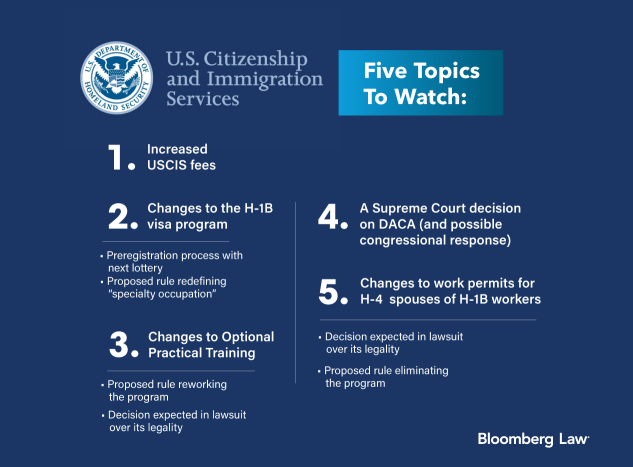Welcome to the year 2024! As we embark on this new year, it is essential to stay informed and understand what to expect from the U.S. Congress in the year of 2004. The political landscape is constantly changing, it is crucial to have a clear understanding of the potential policies and legislation that may impact immigrant communities.
In 2024, immigrants can expect the United States Congress to continue debating and introducing legislation related to immigration reform. The issue of immigration has long been a contentious and polarizing topic in American politics, and it is likely that United States Congress will continue to address this issue in the coming years.
Here are some issues you should watch for in 2024.
1. H-1B – The Department of Homeland Security has recently proposed amendments to its regulations concerning H-1B specialty occupation workers. See H-1B proposed amendments here. The goal of the proposed amendments is to modernize and improve the integrity measures related to the H-1B visa program. This program allows foreign workers with specialized knowledge and skill to work in the United States, and it is vital for the American economy.
2. USCIS Fee Increases – The USCIS is expected to increase its fees for various immigration services, with some fees more than doubling in cost. For example, the fee for an application for naturalization, the process of becoming a U.S. citizen, is expected to increase from the current $725. to a proposed $1,170. Similarly, an application for a green card is expected to rise from $1,225. to $2,195. These substantial fee hikes are expected to have a significant impact on immigrants and their families, especially those who may already be struggling financially. Expecting USCIS to publish its final rule in April 2024.
3. DACA (Deferred Action for Childhood Arrivals)- On September 13, 2023, the U.S. District Court for Southern District of Texas issued a decision finding the Deferred Action for Childhood Arrivals (DACA) unlawful and expanding the original July 16, 2021, Injunction and Order for vacatur to cover the Final Rule. See Decision here. However, the court maintained a partial stay of the Order for “All DACA recipients who received their initial DACA status prior to July 16, 2021. As of now, DACA recipients’ future is uncertain.
It is possible that the United States Congress may consider comprehensive immigration reform that addresses various aspects of the immigration system, including pathways to citizenship for undocumented immigrants, reforms to the legal immigration system, and border security measures. Additionally, there may be discussion about the future of Temporary Protected Status (TPS) for immigrants from certain countries facing instability or natural disasters.
It is important for immigrants to stay engaged with the political progress of these issues. This can be done through contacting elected representatives, participating in advocacy organizations, and staying informed about policies and legislation that may impact immigrant communities.
Ultimately, the expectations for the United States Congress in 2024 will depend on the outcome of the upcoming election and the priorities of the elected officials. It is important for immigrants to stay informed and engaged in the political process in order to have a voice in shaping policies that impact their lives. By staying informed and actively participating in the democratic process, immigrants can help ensure that their needs and interests are represented in the decisions made by the U.S. Congress.
Welcome to the year of 2024, where the potential for progress and change is as vast as the sky. It is up to us to embrace the opportunities that lie ahead and to work towards creating a better, more sustainable, and inclusive future for generations to come.

